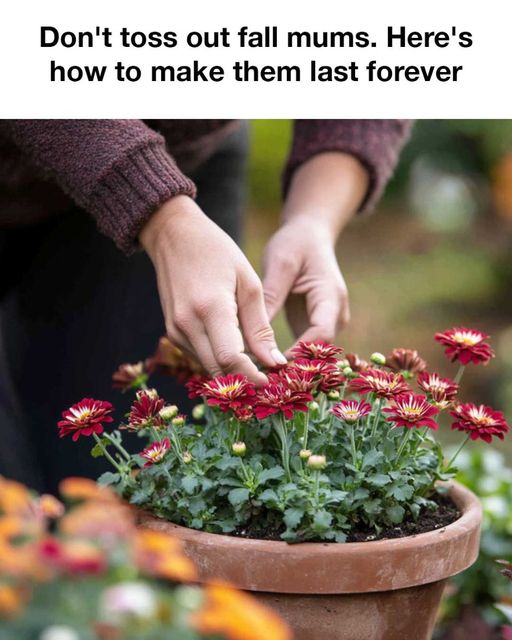Pest and Disease Management
Mums can be susceptible to pests like aphids, spider mites, and diseases such as powdery mildew and rust. Monitor plants regularly and take action at the first sign of trouble. Use insecticidal soap or neem oil for pests and ensure good air circulation to minimize fungal issues. Avoid overhead watering to reduce the risk of disease.
Overwintering Strategies for Mums
To help your mums survive winter, prepare them for the dormant period. Stop fertilizing in late summer and reduce watering as temperatures drop. In addition to mulching, consider setting up a windbreak if your mums are in an exposed location. Some gardeners even dig up their mums and store them in a cool, dark place over winter, replanting them in spring.
Propagating Mums for Future Seasons
Propagating mums is a cost-effective way to increase your stock. This can be done through division or taking cuttings. In spring, dig up established plants and divide the root clumps, replanting the sections immediately. Alternatively, take shoot cuttings in the summer, rooting them in a well-draining medium and keeping the soil moist until new growth appears.
Common Mistakes to Avoid
One common mistake is planting mums too late in the fall when the roots don’t have enough time to establish before winter. Overwatering and poor drainage can lead to root rot, while under-watering causes stress. Avoid using high-nitrogen fertilizer late in the season as it promotes new growth susceptible to frost damage.
Advertisement
Conclusion: Enjoying Perennial Mums Year After Year
With a bit of knowledge and care, fall mums can be a recurring star in your garden. By choosing the right varieties, planting them properly, and protecting them through winter, you ensure these vibrant flowers will return to brighten your garden each fall. Embrace these tips, and you’ll enjoy the enduring beauty of mums for many seasons to come.
I didn’t know I could keep these forever

Pages: 1 2